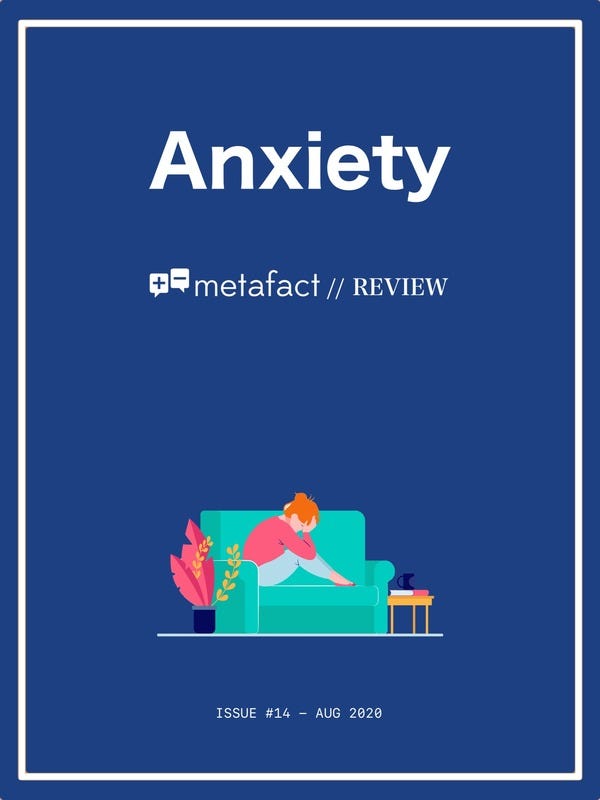Is anxiety a lifelong condition?
Hello everyone,
The national institute for mental health estimates that over 30% of US adults experience an anxiety disorder at some point in their lives. Whilst many people experience manageable levels of anxiety, some are affected by more severe anxiety which strongly impacts their daily life. Those unfortunate enough to experience issues with anxiety often ask themselves ‘will this problem last forever?’. To answer this question, we asked 7 experts in psychology, neurobiology and mental health ‘Is anxiety a lifelong condition?’, here is what they said…
EXPERT CONSENSUS
Is anxiety a lifelong condition?
4 out of 7 experts say ‘no’
What is anxiety?
Dr Adam Heenan, a clinical psychologist from Ottawa in the USA says “Anxiety is an emotion, so I would not consider it a ‘condition’ at all. Some people, on the other hand, describe themselves as ‘anxious’ or have been diagnosed with an ‘anxiety disorder.’”
Dr Jerome Palazzolo, a psychiatrist from Cote d’Azur University in France, goes on to say that “Anxiety disorders are arranged into six clinical categories: generalised anxiety disorder (GAD); panic disorder with or without agoraphobia; social anxiety disorder; specific phobia; obsessive-compulsive disorder (OCD); post-traumatic stress disorder (PTSD). In France, the prevalence of all disorders in the general population aged 18 to 65 is around 15% over a 12-month period and 21% over a lifespan, with a prevalence twice as high in women than in men.”
Do you get anxiety for life?
Dr Heenan says “While someone who describes themselves as anxious may be more genetically predisposed to anxiety (we often colloquially call such people ‘high-strung, tense, nervous, etc.’), anxiety disorders typically reflect learned behaviour. For example, generalised anxiety disorder is characterised by relentless worrying (a behaviour, not an emotion), and panic disorder can develop in people who learn to fear having a panic attack. Both those things can be ‘unlearned’ through therapy or other positive, corrective experiences. “
Dr Ronald Rapee, an expert in psychology and mental health from Macquarie University in Australia, says “anxiety itself is a very normal experience that is critical for life. Therefore, by definition, anxiety as a normal human experience is lifelong. We also know that anxiety levels are very much a part of someone’s basic personally – some people simply experience more anxiety than others. While this is not necessarily lifelong (personality will fluctuate according to life circumstances and stages), high anxiety is generally one of the more consistent types of mental health difficulty.” He goes on to say that “anxiety disorders can be successfully treated and people can also ‘lose’ their anxiety disorder through self-help, maturation, changed lifestyles, or simply the passage of time. So an anxiety disorder does not necessarily have to be lifelong.”
Professor George Patton, an expert in mental health from Royal Children’s Hospital in Child Development in Australia agrees with the other experts, saying “There is quite a lot of evidence that anxiety problems come and go. For some young people anxiety may arise in the context of a life stress but resolve as the stress resolves. For others it may be a fluctuating problem and for a minority will be a chronic and persistent problem with a high level associated disability. If an anxiety problem persists for longer than 6 months at a time, there is a higher likelihood of it persisting into adulthood.”
How can anxiety be reduced?
Most experts agreed that anxiety disorders can be treated.
Dr Laura Schrader, an expert in neurobiology from Tulane University in USA, says “If an individual can understand the stressors that trigger anxiety in their lives and how to handle them, anxiety levels can be reduced. Exercise and meditation are common ways to deal with anxiety. Furthermore, if a person is relieved of that stressor, ie retirement from a job, anxiety levels decrease.”
Dr Edwin de Beurs, an expert in psychology and mental health from Leiden University in the Netherlands, says “anxiety disorders are treatable and recovery rates, e.g., after cognitive behaviour therapy (the psychological treatment with the best empirical support) are substantial. However, high anxiety sensitivity (the tendency to become easily or quickly anxious) is a rather stable trait and a risk factor for developing clinical anxiety or an anxiety disorder.”
The takeaway:
Whilst some people may be more prone to feeling anxious all their lives, most anxiety disorders are treatable.
May the facts be with you!
Eva
Is Anxiety Genetic or Environmental?
Learn more about anxiety deep-diving review
If you like our newsletters you can make a donation to support our work here at Metafact.
Verified by Metafact is a reader-supported publication. To receive new posts and support my work, consider becoming a free or paid subscriber.

